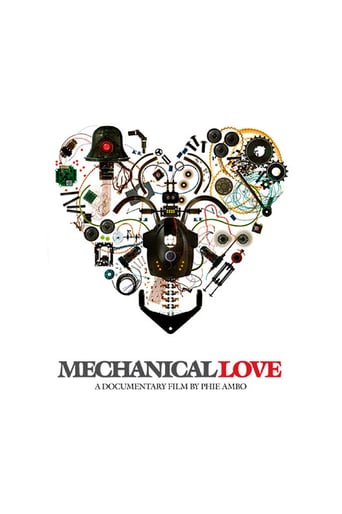mcwhammer
There's a lot to like about Mechanical Love. For the most part however, the best parts are those NOT featuring the main subject, an engineer named Hiroshi Ishiguro. Ishiguro has made an exact replica of himself, but is still working out the kinks to make it a perfect robot. The lips don't move, but he blinks. He can talk, but only via a computer and microphone. Otherwise, his skin, eyes and hair are creepily realistic. And this seems to be the part that worries everyone around Ishiguro, including his poor daughter (whom he also made a clone robot for), who is scared to touch the geminoid. The problem with Ishiguro, you quickly find, is that he's somehow more lifeless than the robot he's created. The expressive robot hilariously slumps back in the chair and rolls his eyes back when unplugged - just like you'd expect to happen. A poor main subject was chosen for this documentary, because the secondary focus is on needy people who have already been given experimental dolls to keep as pets. These dolls are furry white baby seals. These have been seemingly passed out to certain testers, including nursing home patients. One elderly woman loves the doll dearly, and pets it like a cat. She talks to it so much that her voice is hoarse when it's time for the day's choir rehearsal, leaving her unable to sing with the residents. This particular woman is massively misunderstood. People forget how lonely a nursing home can be for a resident (having a grandmother with Alzheimer's disease will change you very quickly). This woman explains to the camera that she does not care what anyone thinks about her. The doll makes her feel young again, almost as if she were caring for a child. So it's disgusting to see other residents talking about her affection for her only friend. This film is all about these extremes... people who embrace the arrival of lifelike robots, and those who refuse to even acknowledge them.
